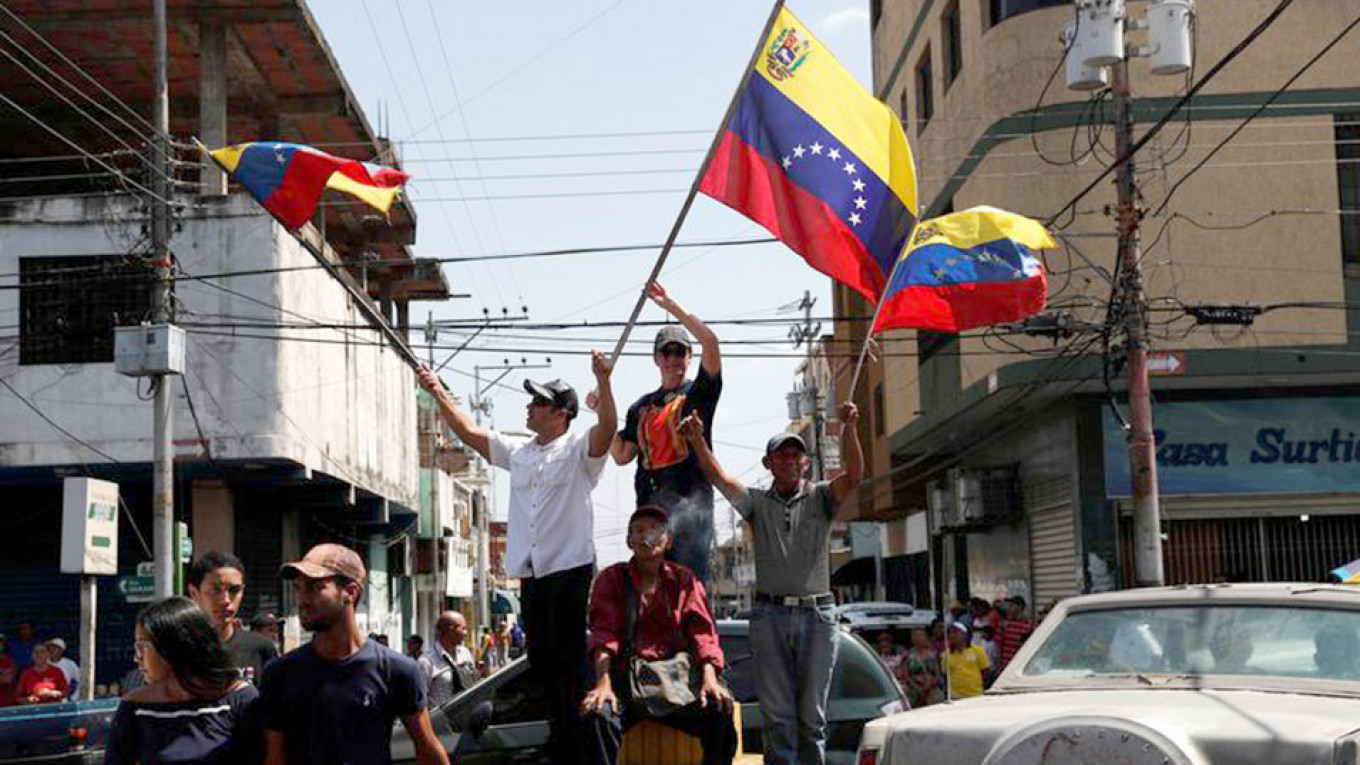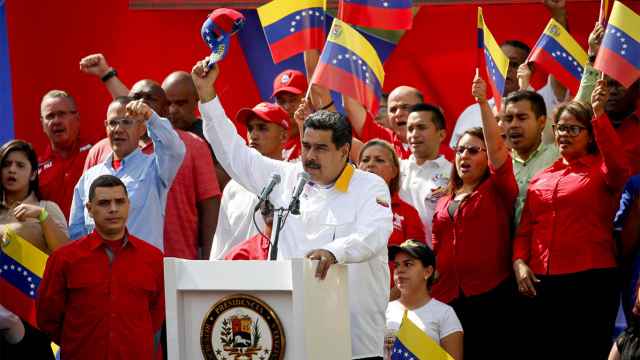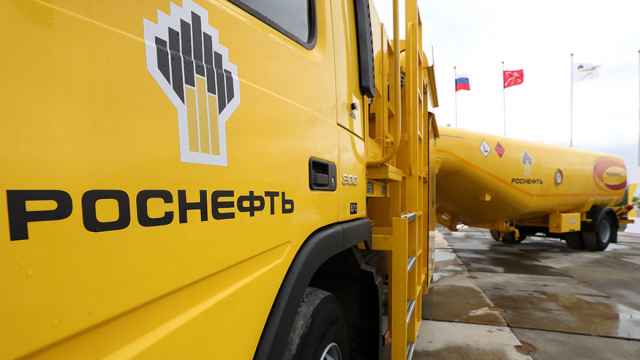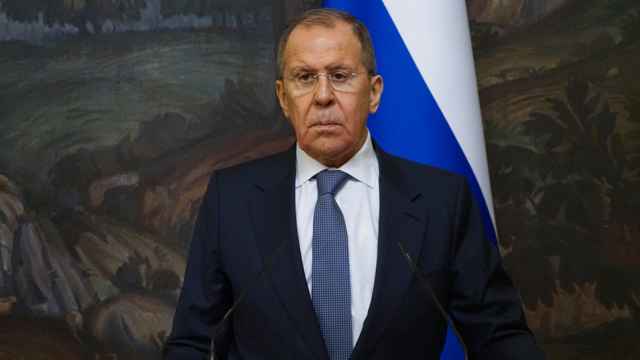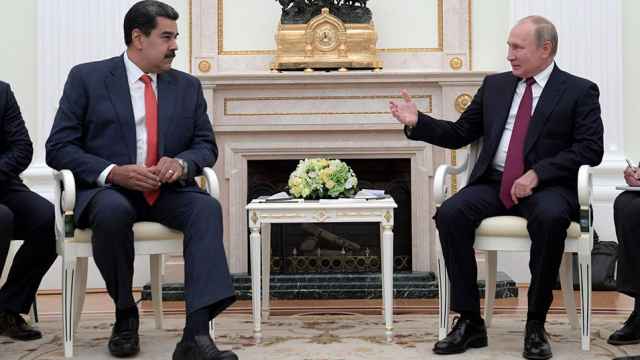For the past two months, many of America’s allies have worried that U.S. President Donald Trump really means it when he says that “all options are on the table” when it comes to Venezuela. It turns out that they should have been paying more attention to Russian President Vladimir Putin.
On Saturday two Russian cargo planes of personnel and equipment landed in Caracas, prompting a war of words between Moscow and Washington. Secretary of State Mike Pompeo warned the U.S. would not “stand idly by” as Russia continued to arm the illegitimate regime of Nicolas Maduro. Russian Foreign Minister Sergei Lavrov responded that his government opposed the U.S.-led coup in Venezuela.
Some of this is reminiscent of Syria. In the summer of 2015, after Lavrov helped negotiate the Iran nuclear deal, Russia cut another deal — with Damascus, to establish air bases in Syria and work closely with Iranian forces and militias to take back territory from anti-government rebels. The U.S. complained but did nothing to stop Putin from controlling the airspace in that country. To this day, Russia is the power broker in Syria and their client, President Bashar al-Assad, remains in power.
But the analogy with Syria only goes so far. The Russian flights to Caracas are less than meets the eye, says one U.S. official working closely on the crisis; according to U.S. estimates, there has been no net increase of Russian personnel in Venezuela since the crisis began in January. This source said the Russian forces were sent to protect non-military Russian personnel and to perform maintenance on Venezuela’s Russian-designed air defense system, which was damaged this month when the country’s electric grid went dark.
The main value of Russia’s move is symbolic. It comes just as there is increasing pressure on Venezuela’s military leaders to cut a deal with the democratic opposition to oust Maduro and hold interim elections. Russian military aid is a signal that, for now, Moscow has no plans to cut its client loose.
That position, however, is not sustainable in the long run — for Russia or China. Venezuela owes both countries billions of dollars, and there is no hope for repayment so long as secondary sanctions remain on the state-owned oil company. Russia, China and many of Maduro’s remaining supporters will find it increasingly costly to keep the usurper in power.
In the meantime, it appears that Trump will deliver an economic response to Russia’s latest military assistance. The administration is currently considering additional sanctions and enforcement actions against Venezuela.
There is already some pressure building for this approach in Congress. On Tuesday, Senator Robert Menendez wrote a letter to Pompeo asking if Russian military transactions with Cuba, Nicaragua and Venezuela could be sanctioned under new Russian sanctions passed in 2017.
Menendez, the ranking minority member on the Senate Foreign Affairs Committee, based his letter on a Defense Intelligence Agency report from last year that said Russia sold Venezuela 10 refurbished attack helicopters in 2017. Menendez said he suspects Russia has been selling more equipment since then.
As it stands, however, Russia has not sent enough guns or troops to make much of a difference to Maduro. More sanctions will hopefully deter the Russians further. In which case, the Trump administration will be able to continue what has been a largely bipartisan policy: encouraging a nonviolent, democratic transition in Venezuela.
This opinion piece was first published by Bloomberg View.
A Message from The Moscow Times:
Dear readers,
We are facing unprecedented challenges. Russia's Prosecutor General's Office has designated The Moscow Times as an "undesirable" organization, criminalizing our work and putting our staff at risk of prosecution. This follows our earlier unjust labeling as a "foreign agent."
These actions are direct attempts to silence independent journalism in Russia. The authorities claim our work "discredits the decisions of the Russian leadership." We see things differently: we strive to provide accurate, unbiased reporting on Russia.
We, the journalists of The Moscow Times, refuse to be silenced. But to continue our work, we need your help.
Your support, no matter how small, makes a world of difference. If you can, please support us monthly starting from just $2. It's quick to set up, and every contribution makes a significant impact.
By supporting The Moscow Times, you're defending open, independent journalism in the face of repression. Thank you for standing with us.
Remind me later.



